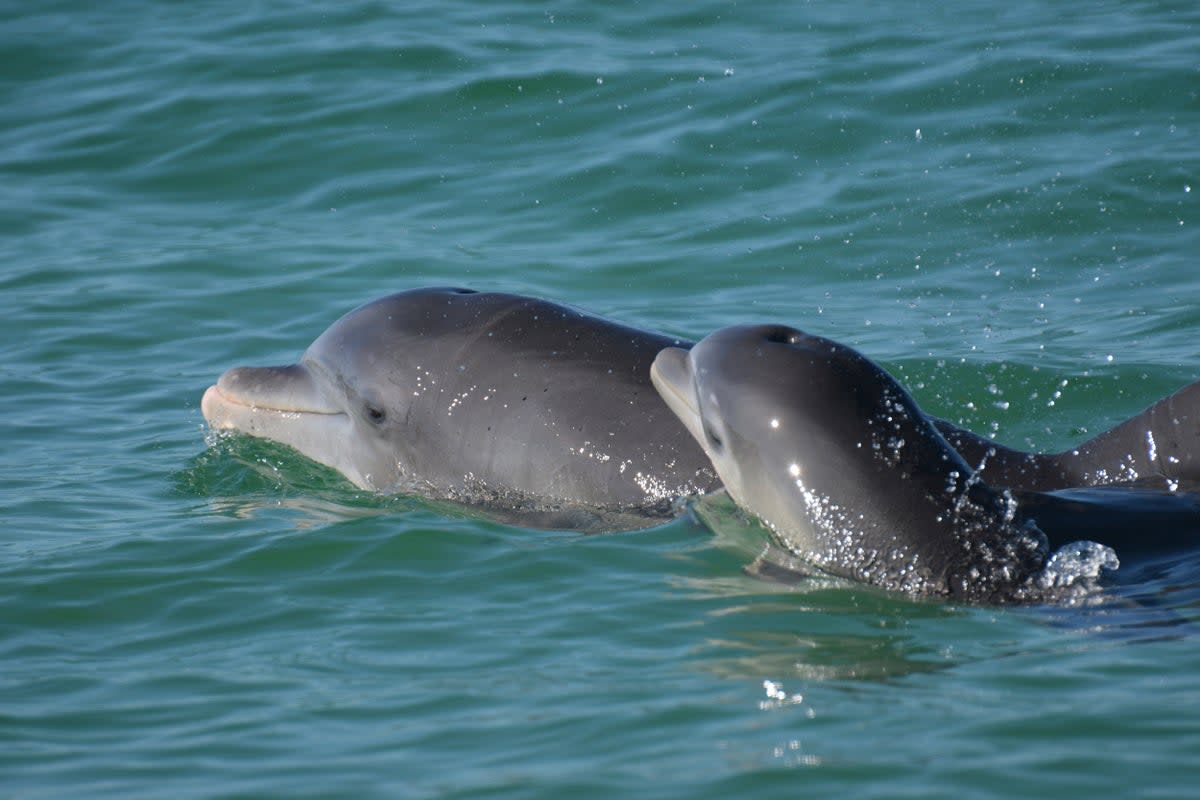Dolphins ram into swimmers at popular beach in Japan: ‘If you see them, don’t go in the water’

A spate of dolphin attacks on swimmers at a popular tourist beach in Japan in a single day has prompted serious warnings by the country’s officials.
The aquatic mammals have a reputation for being “friendly” creatures, but experts have pointed out that wild dolphins can exhibit aggression and stress due to human interactions.
Four swimmers were left injured in separate dolphin attacks in a single day at the beach in central Japan, officials said.
On Sunday, a dolphin attacked a man in the shallow waters at the Suishohama beach in Fukui prefecture, breaking his ribs, reports said.
Around 4.10am local time, an eyewitness notified the police about the dolphin attack that occurred at the tourist spot in the town of Mihama.
The man in his 60s from Gifu prefecture reportedly suffered three or four broken ribs and bites to his hands.
According to the Tsuruga police station, the swimmer was approximately five metres offshore with a friend when the dolphin lunged at them.
In the same morning, another incident occurred, in which a man in his 40s was bitten by a dolphin on his left arm.
Later in the day, two more people were reportedly injured by the dolphins at the beach.
“If you see them [dolphins], don’t go into the water,” a Japanese official was quoted as saying by The Asahi Shimbun. They have also put up signages near the beach, warning swimmers of the dolphin attacks.
Police said they received a total of six reports of dolphin attacks this season alone.
A series of dolphin bites involving beachgoers was also reported by local media last year in Fukui prefecture.
In February this year, a woman was left fighting for her life when a dolphin nearly bit her foot off during a wild swim in a river in Santa Rosa de Yacuma, Bolivia.
In 2019, during a “swim with dolphins” tourist experience in Cancun, Mexico, a distressing incident occurred in which two dolphins attacked 10-year-old Lexi Yeo, a British girl.
The dolphins reportedly dragged Lexi underwater. It was reported at the time that, despite pleas from the trainers, the animals did not stop attacking the girl.
In yet another example of a vicious dolphin attack, dolphins attacked an Irish woman named Valerie Ryan in 2012.
“I was in hospital for five days, in a back brace for several weeks and off work for five months with limited mobility, stiffness and pain. Then I was diagnosed with post-traumatic stress,” she told The Guardian.
“My near-death experience had left me anxious about everything and overreacting in a way I had never done before. I felt that people were looking at me in the wrong way, I began to struggle with loud noises and I suffered from memory loss. Three months before the accident, I had opened a health-food shop, but I had to let it go because I could no longer work.”
Marine life experts have discovered evidence suggesting wild bottlenose dolphins in particular experience significant stress when swimming alongside humans.
The presence of humans disrupts their behavioural routines, making such interactions incredibly stressful for the animals.

